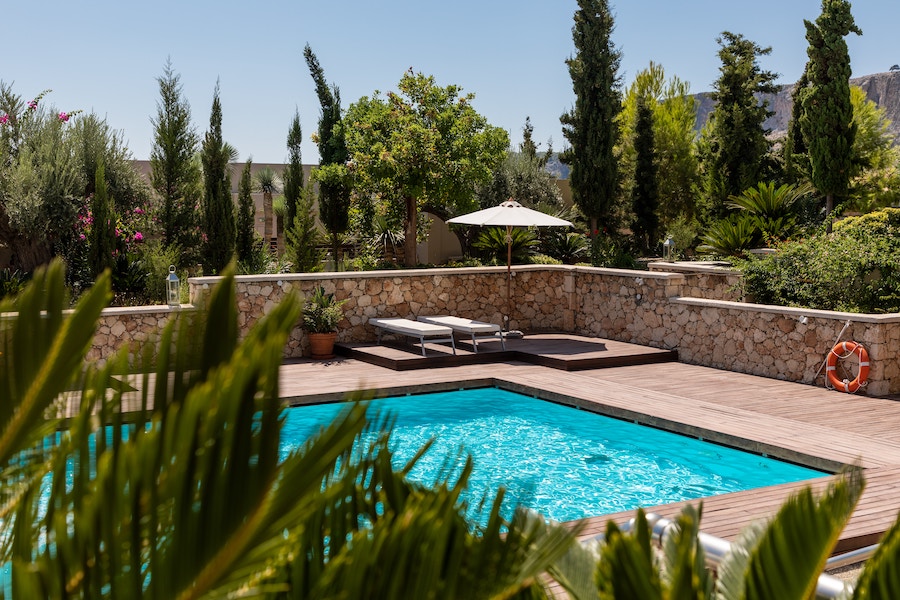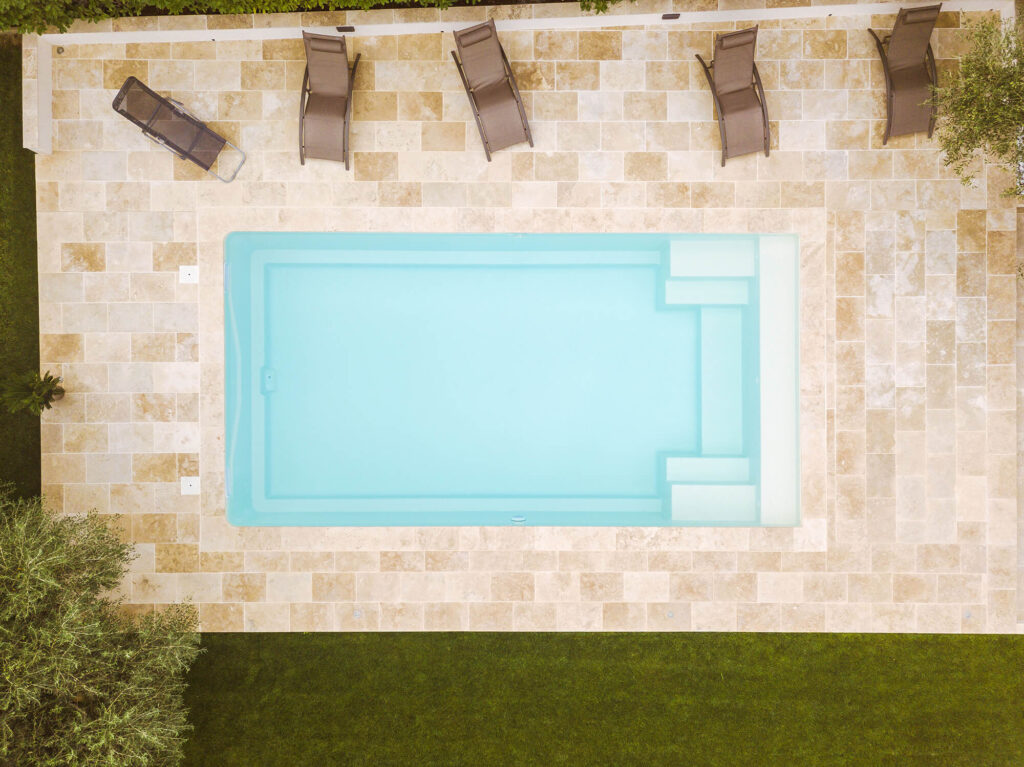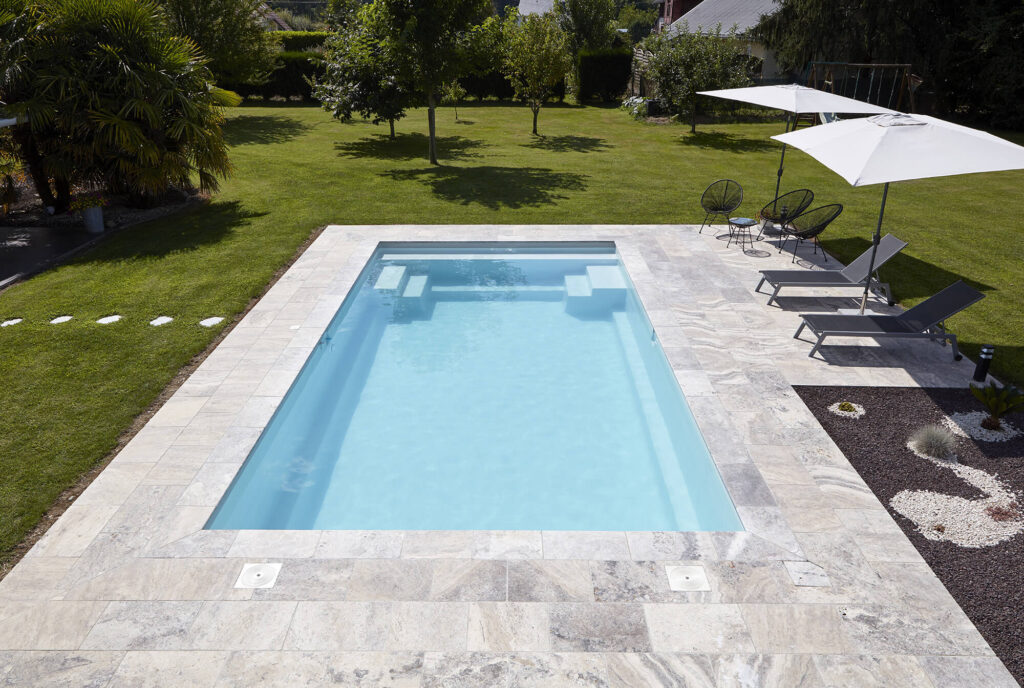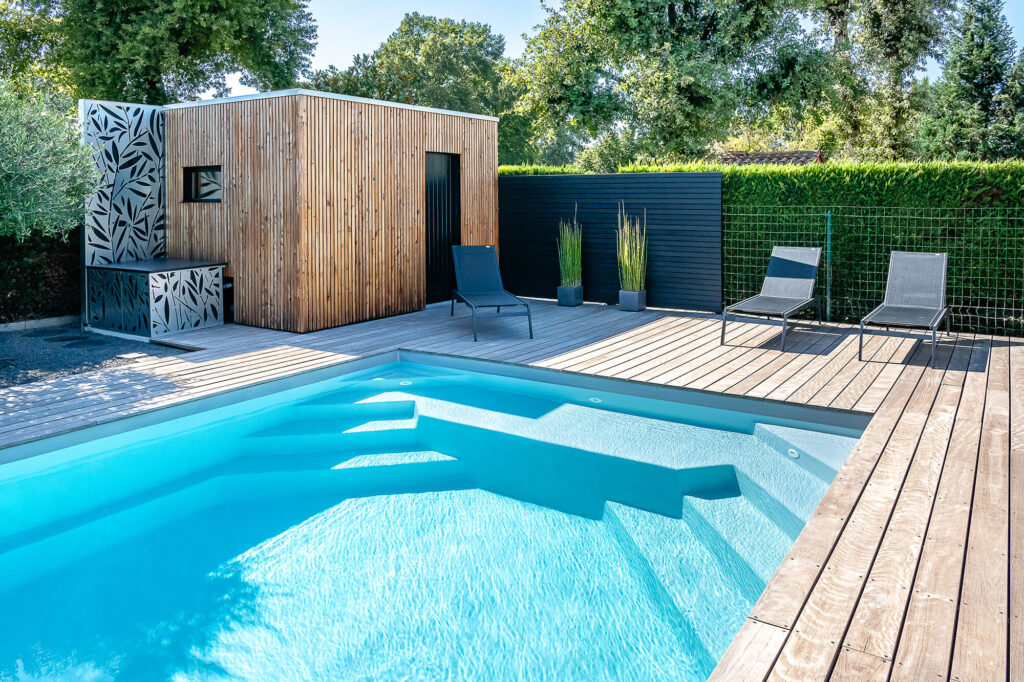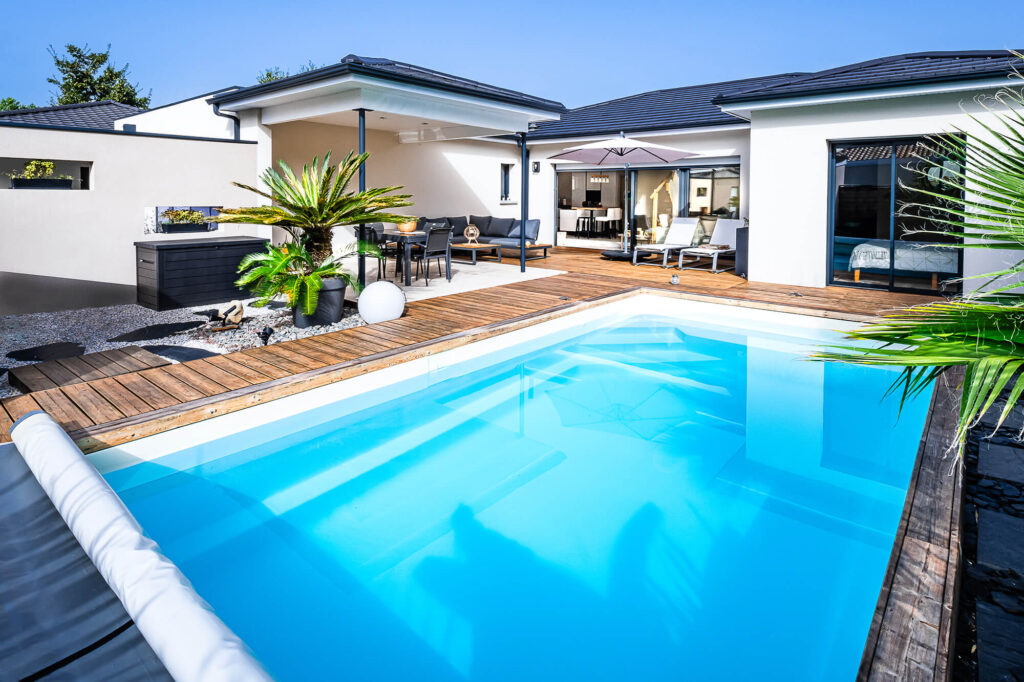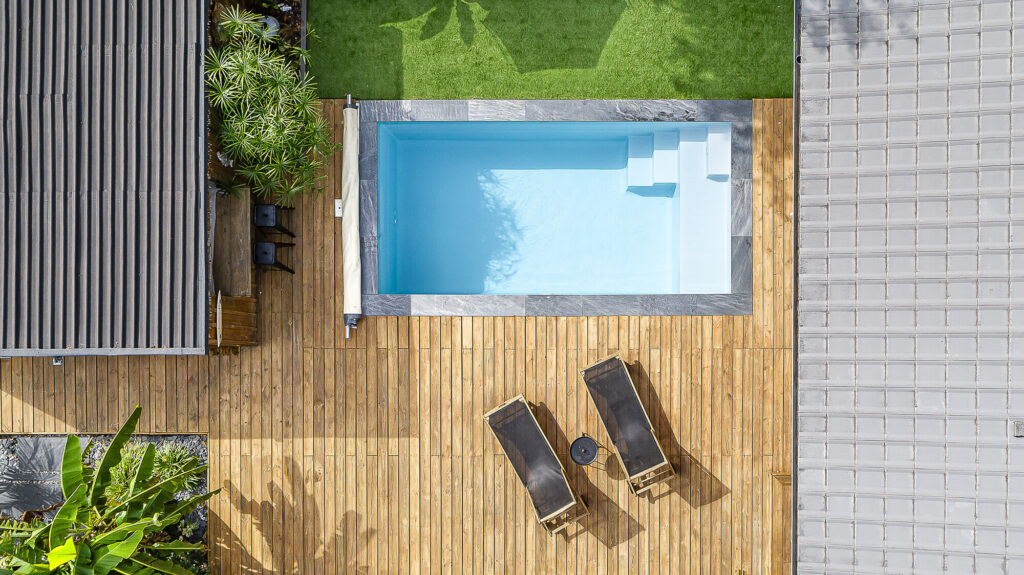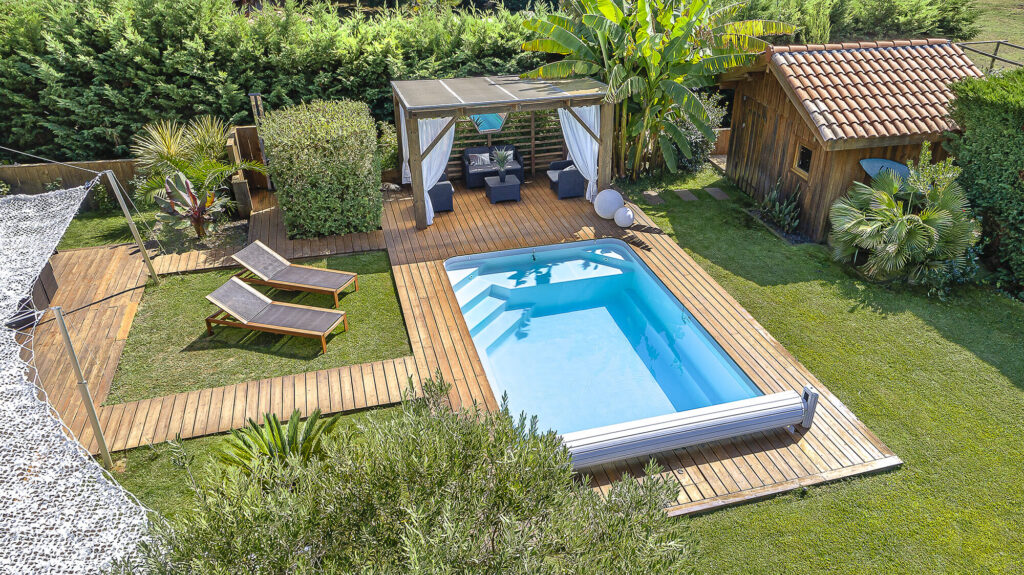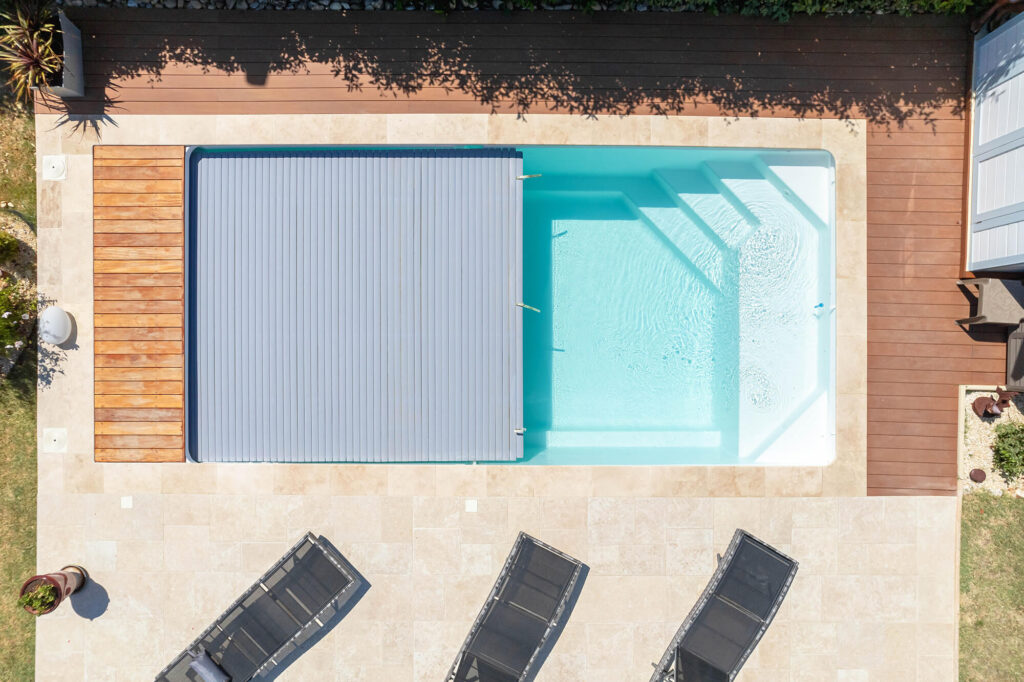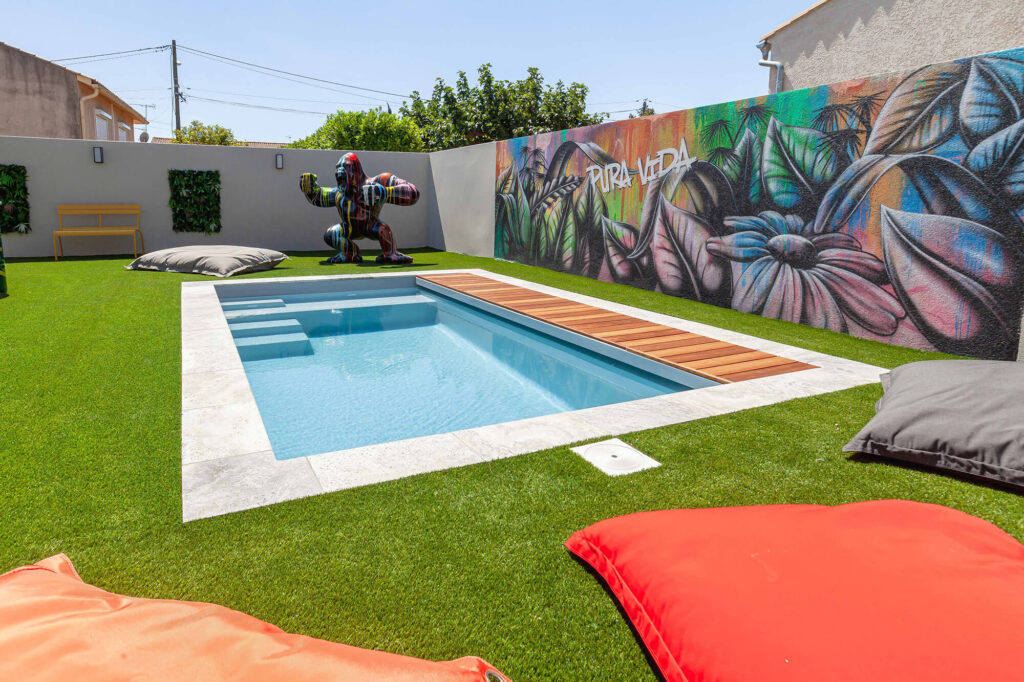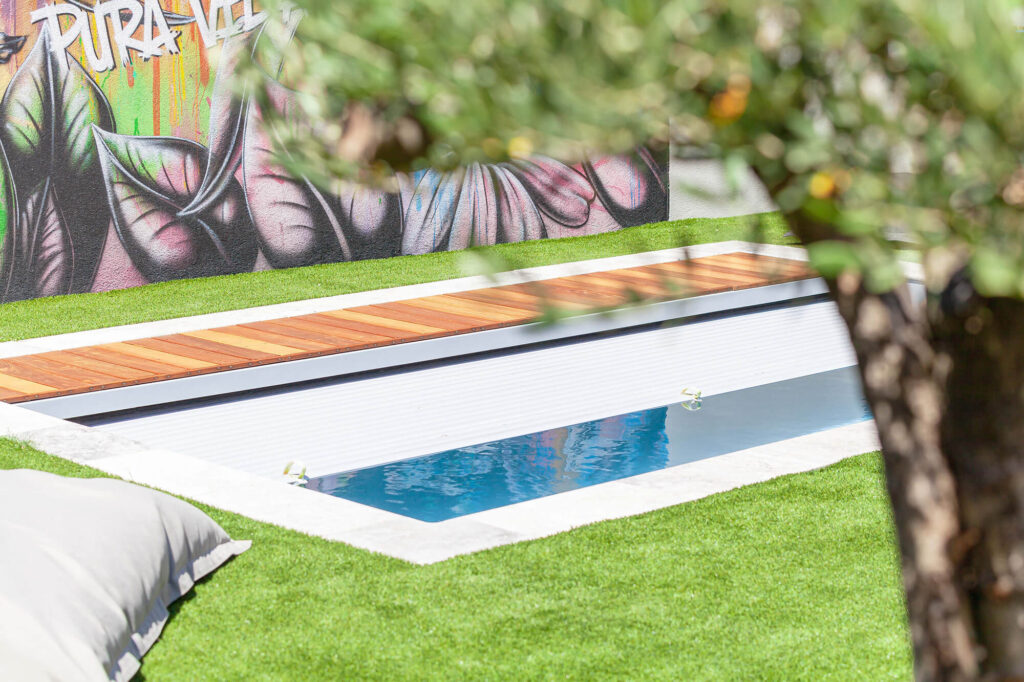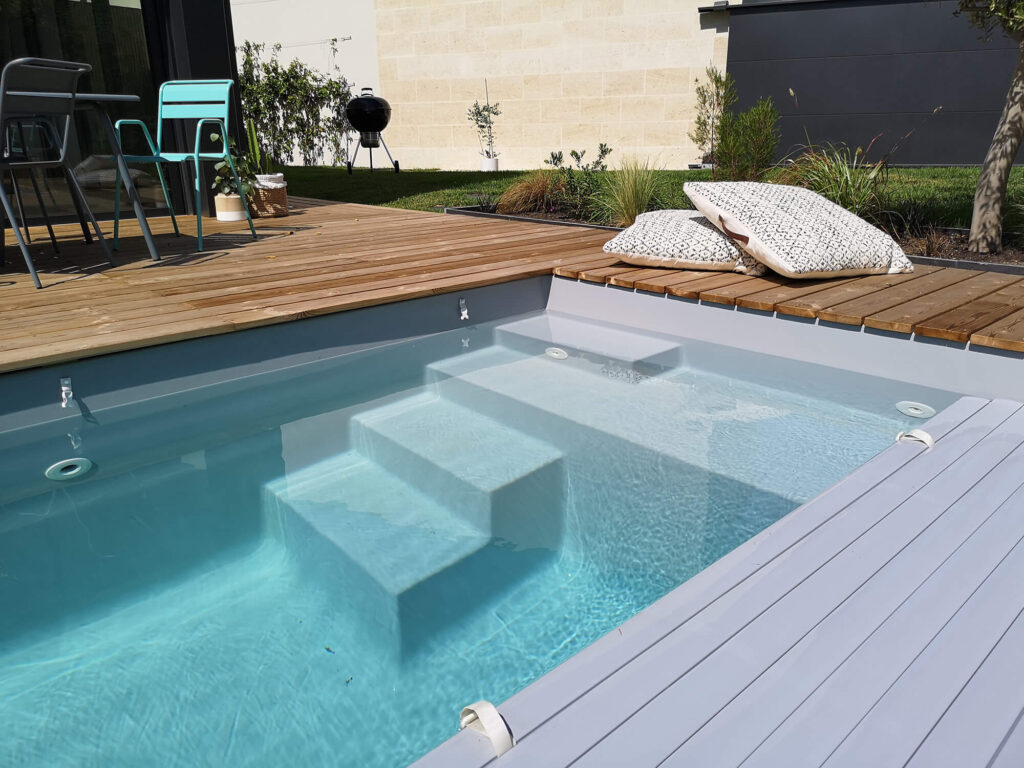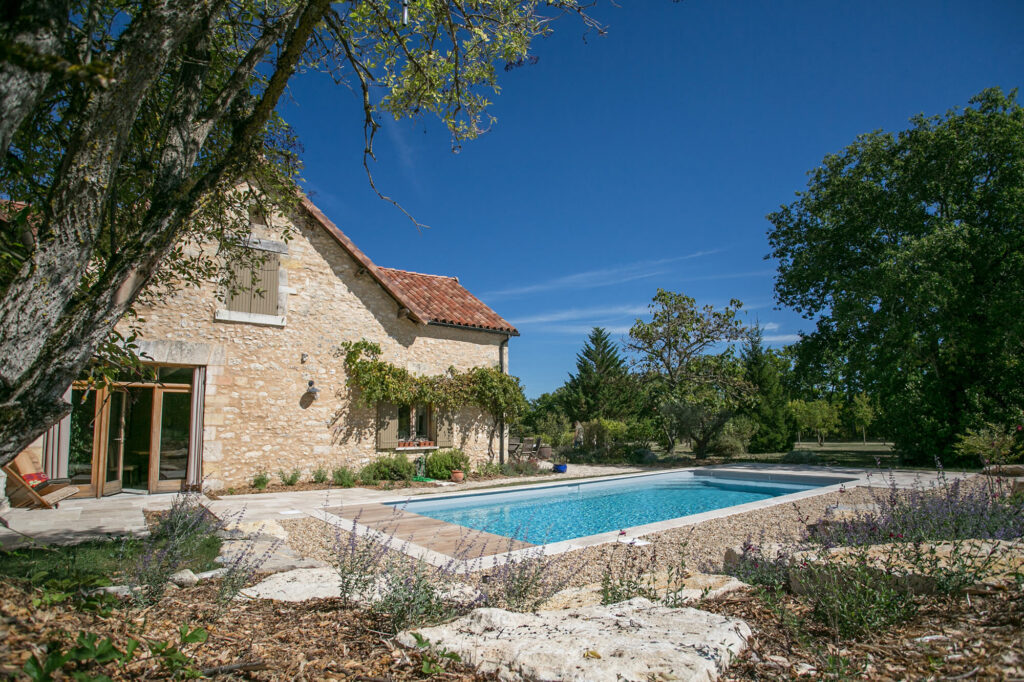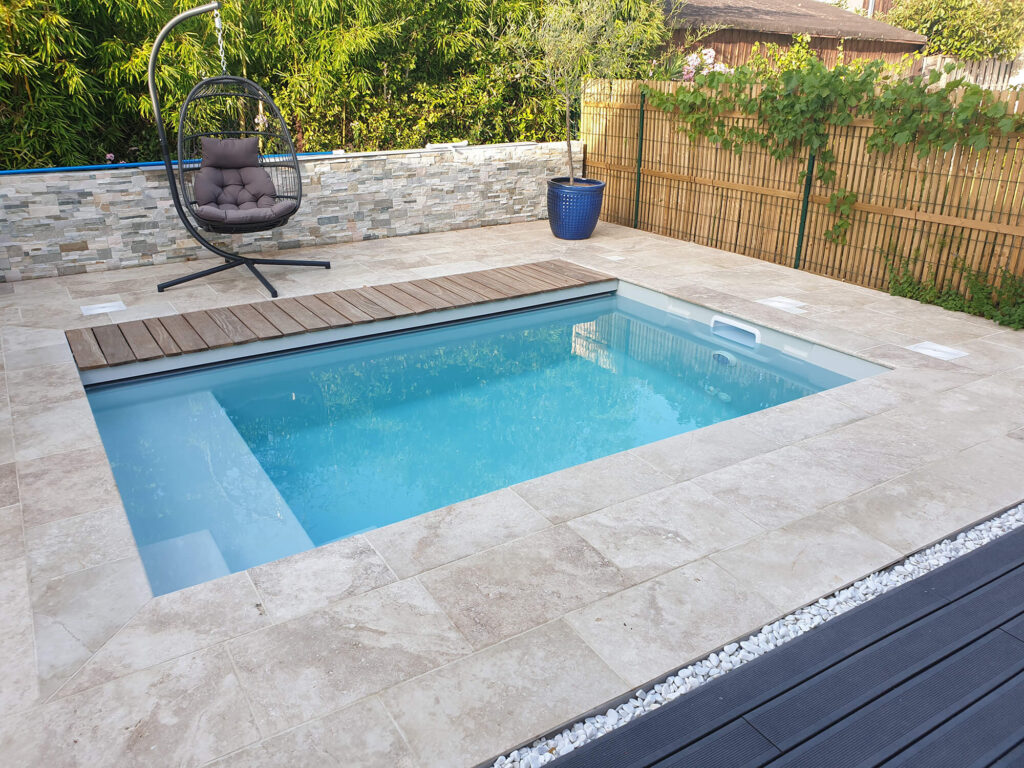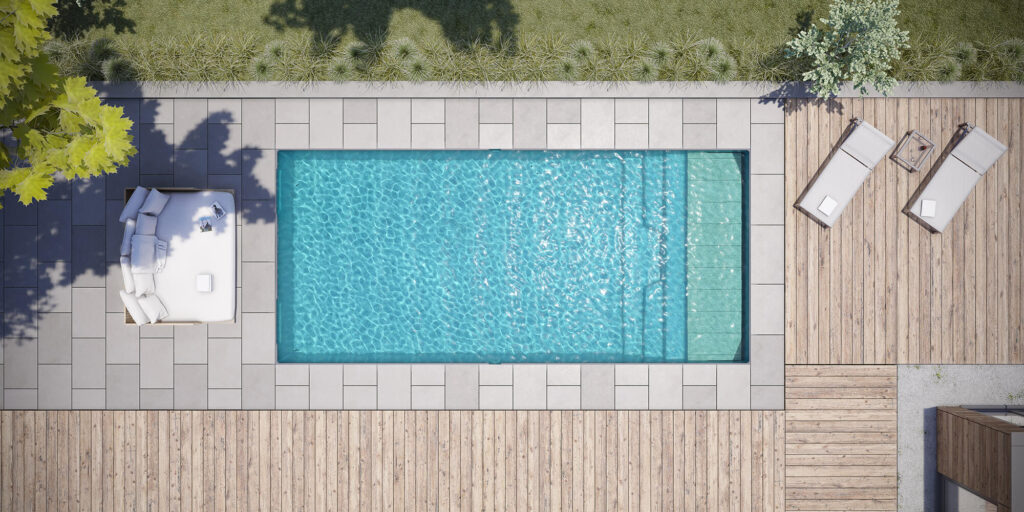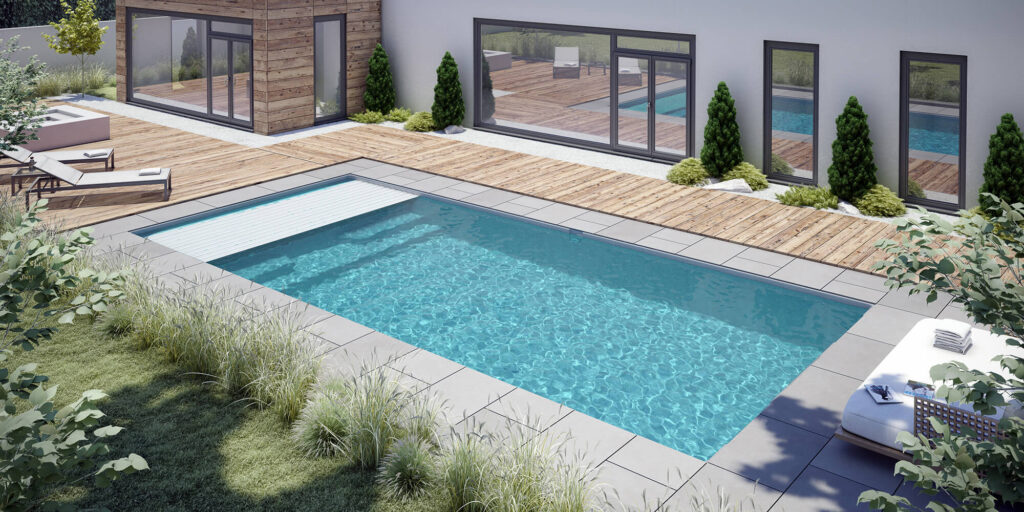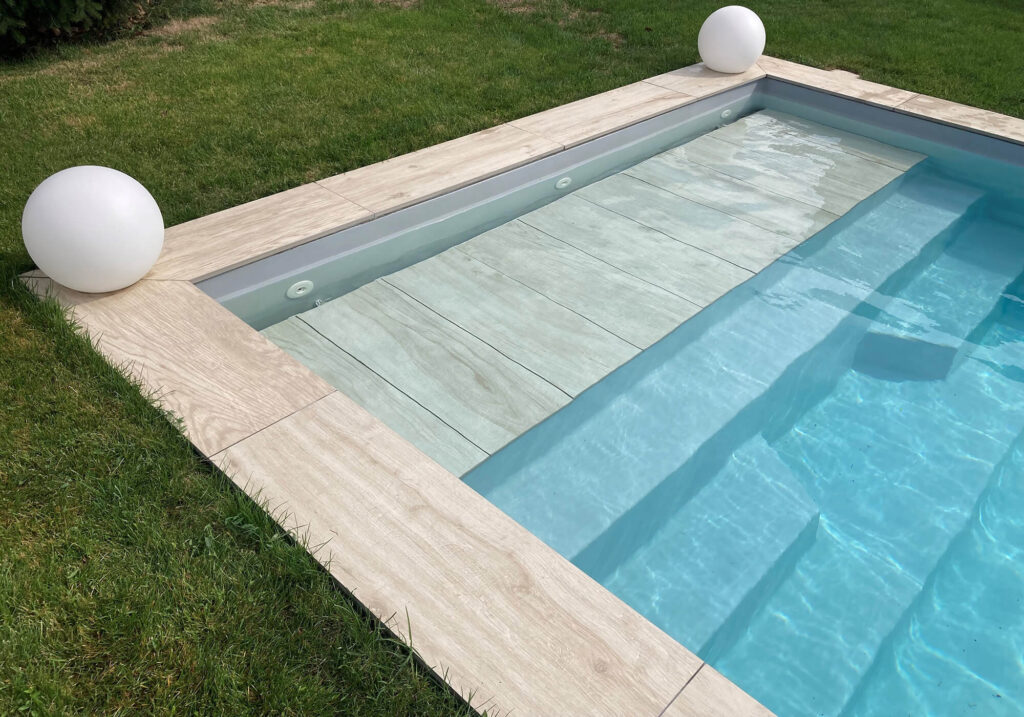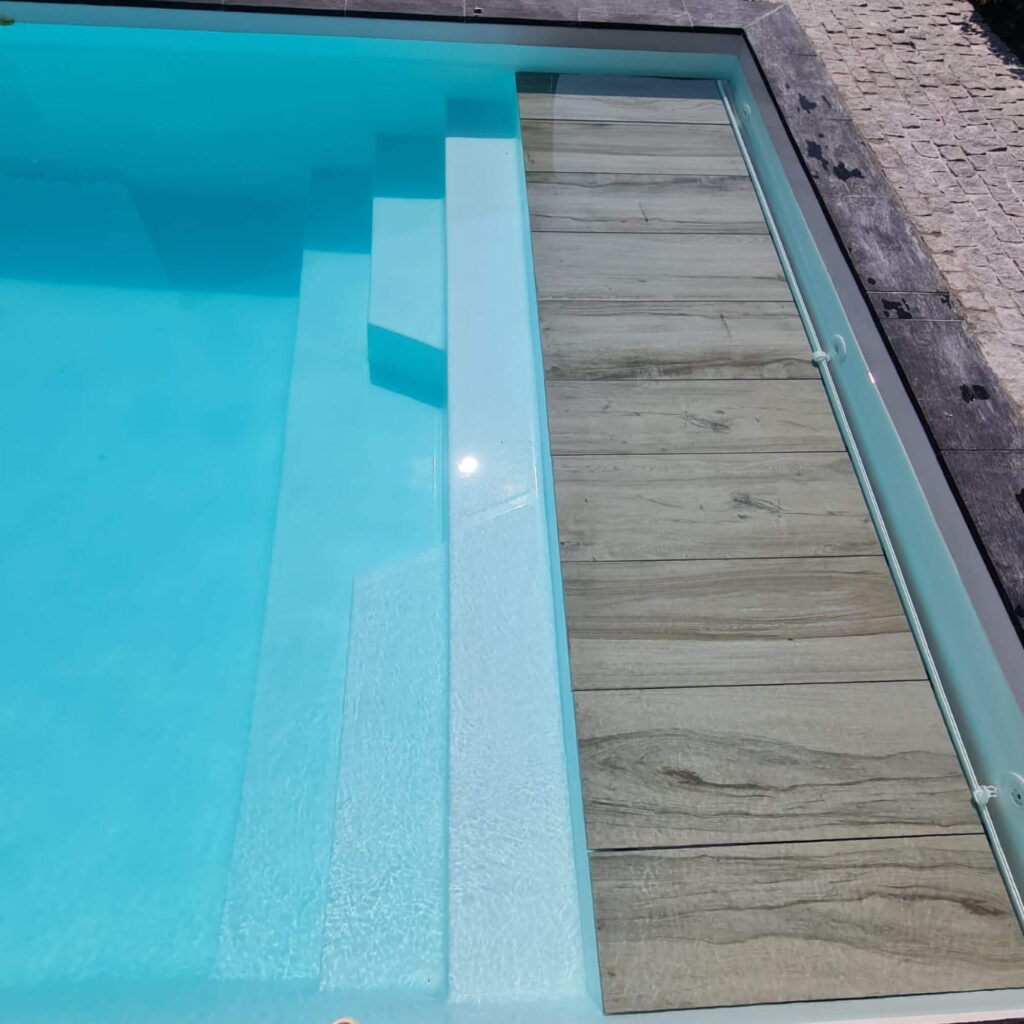In just a few years, swimming pools have managed to establish themselves as an essential element in many homes. And for good reason, they offer a space for relaxation and entertainment that benefits all members of the family!
However, when it comes to choosing the perfect pool model for your outdoor space, the task can be difficult. Above-ground pool, concrete pool or even self-supporting pool… The choices are numerous. Due to their speed of installation and their durability, two options seem to stand out: the shell pool and the container pool .
But then, how do you choose between a shell pool and a container pool? What are their advantages and disadvantages? Discover now the characteristics of these two types of pool to guide you in making an informed decision when purchasing your future pool.
Why choose a shell pool?
A polyester shell pool is a factory-made pool, usually molded from fiberglass-reinforced polyester. It can be an in-ground pool or a semi-in-ground above -ground pool . Here are some advantages and disadvantages to consider.
The advantages of a shell pool
A polyester shell pool has several advantages:
– Fast installation: The factory-cast structure of these pools guarantees delivery in one piece, considerably speeding up the installation process compared to concrete or liner pools requiring on-site construction.
– Unfailing durability: The polyester shell , reinforced with fiberglass and coated with a protective gel coat, offers optimum resistance to bad weather, impacts and pool chemicals. Thanks to this high-quality composition, the lifespan of a polyester shell pool is considerably extended.
– Easy maintenance: The smooth hull surface, combined with a flat bottom, reduces algae growth and simplifies cleaning. Fewer joints mean less risk of leaks and reduced maintenance.
– Wide customization capacity: Available in various shapes and colors, these pools offer aesthetic customization that adapts to your outdoor space. You can also adjust the size of the pool according to your preferences, opting for a mini-pool for example.
– Unparalleled bathing comfort: Shell pools often incorporate steps and non-slip surfaces, ensuring a safe and comfortable bathing experience.
A swimming pool model that has some drawbacks
Despite these advantages, the shell pool may not be suitable for everyone due to certain disadvantages:
– A high initial cost: Although the price-quality ratio is favorable in the long term thanks to lower maintenance costs, the initial cost of these polyester pools can be higher than that of above-ground pools.
– Limited size and shapes: Customization is limited to the options available in the manufacturer’s catalog. If you have specific size or shape needs, this can be a disadvantage.
– Transportation can be complicated: In some cases, it can be difficult to transport the prefabricated shell to your garden, especially if you have restricted access. You may need to use special equipment for delivery.
As you can see, thanks to their factory-molded structure , polyester pools offer a durable, aesthetic and easy-to-maintain option. They also allow the installation of various options such as a filtration system or a submerged shutter, for example. However, they can be associated with a higher initial cost and limitations in terms of customization.
Why choose a container swimming pool?
A container pool can be installed in two different ways, above ground or a semi-buried pool. Before deciding to install an above ground steel pool , it is important to look at its advantages and disadvantages.
The advantages of a container swimming pool
The container swimming pool offers several advantages that are important to know before making a choice:
– An affordable price: Its purchase cost is significantly lower than that of a traditional swimming pool of similar dimensions. Easy to set up, it also generates savings during installation. In addition, if it is placed above ground, it will have no tax repercussions, thus limiting its financial impact.
– Long life: This type of installation, initially designed to withstand extreme maritime conditions and corrosion, ensures a robust and resistant pool. This feature reinforces the longevity of the pool, offering owners a durable and reliable solution.
– An ecological swimming pool: This swimming pool promotes recycling by reusing old containers, thus reducing waste and limiting the overconsumption of other materials.
A type of pool limited in several aspects
Despite its advantages, the container swimming pool has constraints that should be taken into account:
– Limited size: The fixed dimensions of the containers determine the size of the pool, which may not suit those looking for a large pool.
– Limited depth: Standard shipping containers have limited depth, which may not satisfy those looking for a deep pool.
– Poor thermal insulation: Metal containers require additional thermal insulation to maintain water temperature, resulting in additional costs.
– Maintenance constraints: Salt treatment is not possible due to its incompatibility with metal. However, chlorine, bromine and active oxygen remain excellent alternatives to ensure healthy and pleasant bathing water.
– Transport that can be complicated: When purchasing a container pool, do not forget to take into account access to the installation site. Despite its speed of installation and ease of transport, easy access to the garden is necessary (similar to that required for a rectangular shell pool).
Although container pools offer an affordable and quick option, there are limitations in size, depth, and heating considerations to consider. Before choosing, evaluate your needs, budget, and the specifics of your garden.
Shell pool vs. container pool: the final choice
Both polyester shell pools and container pools have their own advantages and disadvantages. The final decision will depend on your individual constraints and needs, requiring careful evaluation.
However, the comparison carried out above suggests that shell pools offer a durable, aesthetic and easy-to-maintain option. They also offer a certain freedom of customization (even if it remains limited by the manufacturer's pool ranges ).
The container pool , for its part, stands out for its affordable cost and quick installation. However, it has constraints in terms of size and depth imposed by container standards. This option can be particularly suitable for those who prefer an economical and temporary solution.
The choice between a polyester shell pool and a container pool is based on individual factors such as available budget, garden space and personal aesthetic preferences. A careful assessment of these elements is essential to make an informed decision and fully enjoy the pleasures of swimming in a pool that precisely meets your needs.
Would you like to know more? We also invite you to discover our article comparing polyester shell pools and acrylic shell pools . You will find detailed information on the advantages, disadvantages and specificities of these two types of pools to guide you in your choice.
Do not hesitate to contact the Aboral teams to obtain a quote or more information on your pond project.
Configure your pool online Back to all news